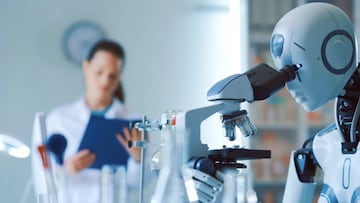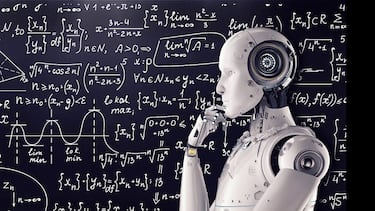AI designs quantum optics experiments and solves them more simply than classical human designs: “Not incomprehensible”
This opens the door to a new way of doing science, one in which humans are not the sole architects of experimentation.

Artificial intelligence has begun to tackle a task once thought to be uniquely human: designing scientific experiments. And not just any experiments. Researchers at University College London have used generative AI models to create quantum optics setups that, in many cases, not only work - but outperform traditional designs. The catch? No one really understands how.
“Really not comprehensible”
“The outputs that the thing was giving us were really not comprehensible by people,” admitted the physicists involved in the study. The configurations proposed by the AI were so unconventional that, at first, they assumed they were mistakes. But once tested in the lab, the results were clear: not only were the designs valid, they solved complex problems with surprising efficiency.

The secret lies in how the system thinks. Instead of following classical patterns or human intuition, the AI explores combinations that defy known logic. It operates without bias, unconstrained by what “should” work. The outcome? Solutions that are simpler, cleaner, and in some cases, more powerful.
A new era for scientific experimentation?
This kind of breakthrough opens the door to a new way of doing science - one where humans are no longer the sole architects of experimentation. While we’re still a long way from AI replacing researchers, it’s becoming increasingly clear that it can be their most valuable partner. In fact, the models used in this study didn’t just design the experiments - they wrote the code, ran it, and evaluated the results. A fully automated research cycle.
The big question now is whether these AIs can generate truly novel ideas - ones capable of revolutionizing physics. But even without groundbreaking discoveries, the learning process could be key to developing more useful, autonomous, and creative AI systems.
The future of physics may not be shaped by human minds alone, but by an AI that - without fully understanding what it’s doing - is doing it better.
Related stories
Get your game on! Whether you’re into NFL touchdowns, NBA buzzer-beaters, world-class soccer goals, or MLB home runs, our app has it all.
Dive into live coverage, expert insights, breaking news, exclusive videos, and more – plus, stay updated on the latest in current affairs and entertainment. Download now for all-access coverage, right at your fingertips – anytime, anywhere.


Complete your personal details to comment